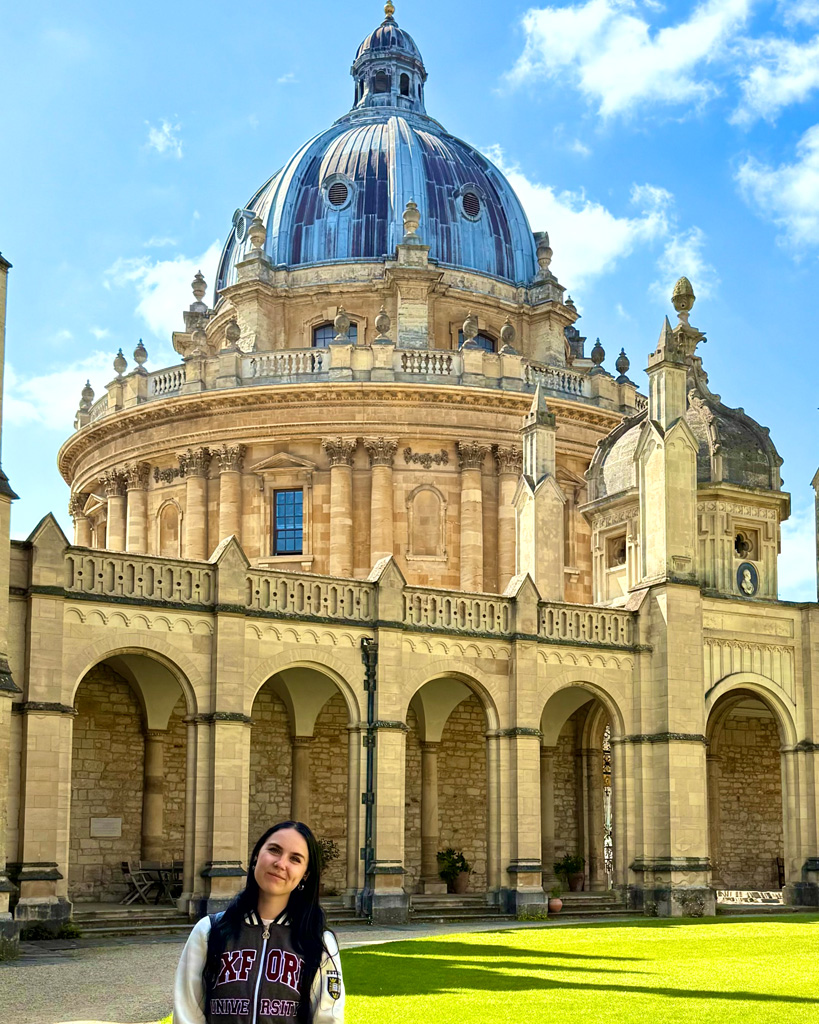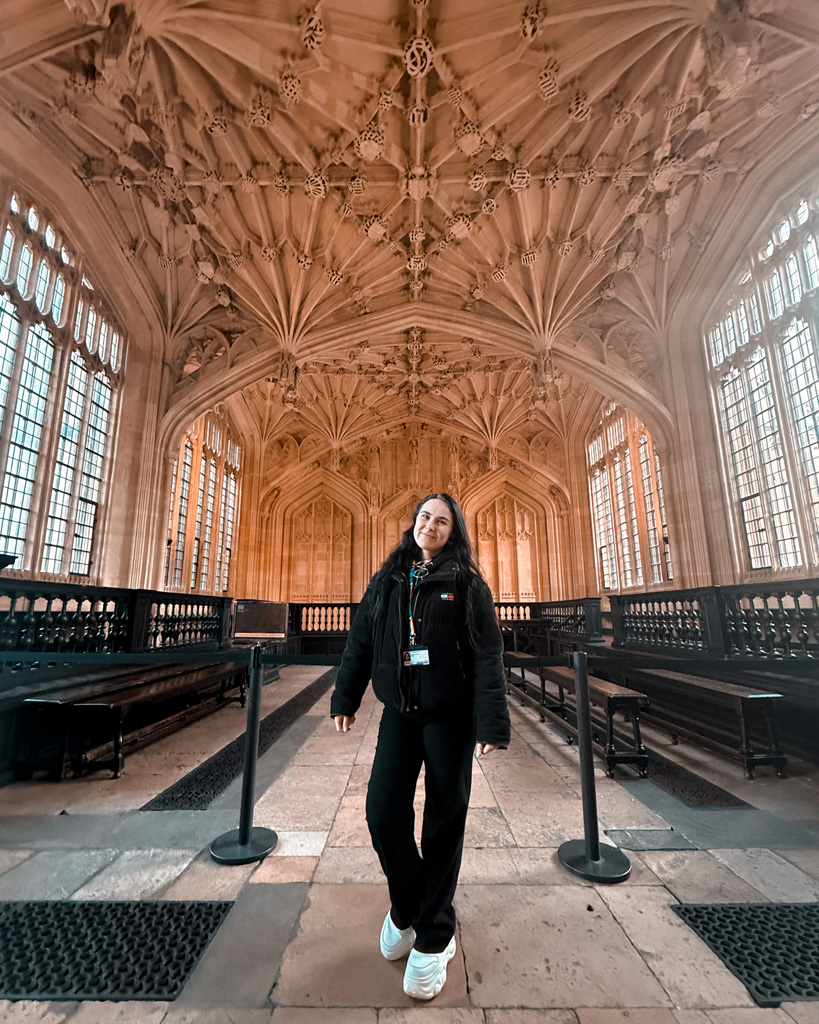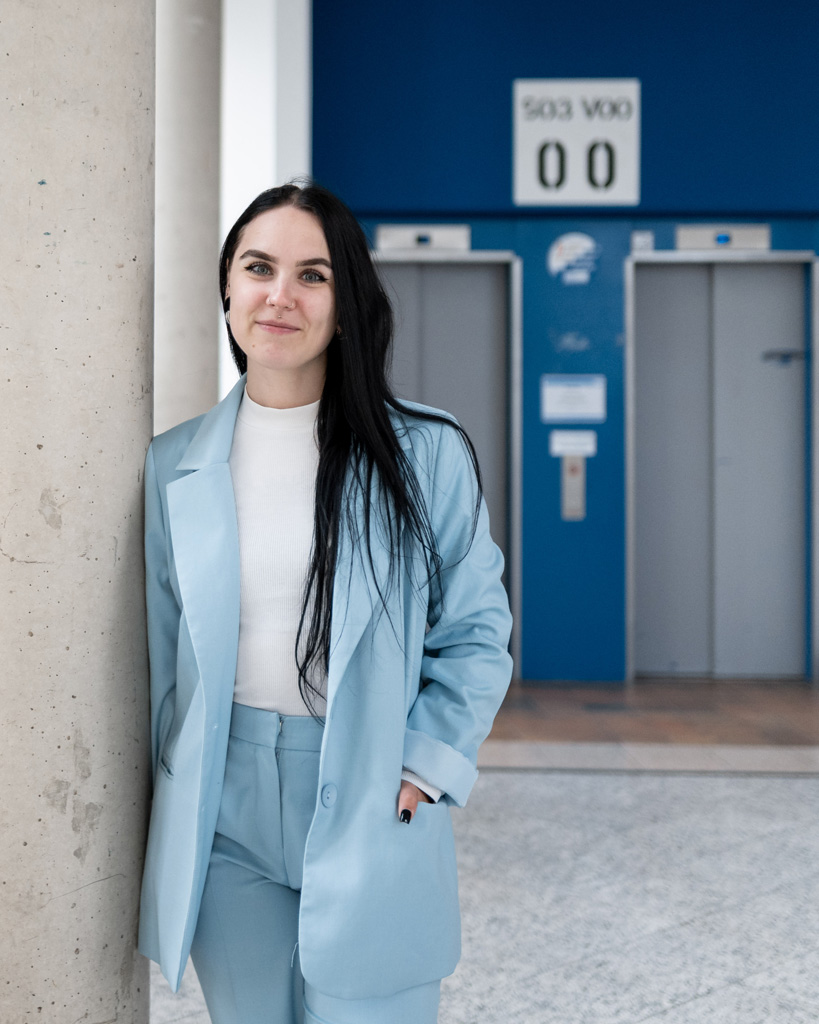
Claudia Szymanski
What began with water science at the University of Duisburg-Essen has taken me all the way to Japan and Oxford. I never would have expected that.
My studies
Water Science (M.Sc.) at the Faculty of Chemistry, University of Duisburg-Essen
Current location
University of Oxford, United Kingdom
What I would like to do at UDE from time to time
Playing chess on the oversized board on the Essen campus
Where can we reach you right now?
I am currently in Oxford, where I am writing my master’s thesis – more precisely, in my shared flat in student accommodation. Chaos on my desk included, because after a long day in the laboratory, I often tinker with small projects.

(Picture: Claudia Szymanski)
You are currently studying Water Science at the University of Dusseldorf. How did you end up writing your Master’s thesis at Oxford?
It was a chain of fortunate coincidences. My master’s programme includes two internships – one of which is a research internship that can also be done abroad. I really wanted to do that – preferably in Japan. Prof. Dr. Bettina Siebers, for whom I worked as a research assistant, put me in touch with someone in Kyoto. During my internship there, I met a professor from Oxford – I am now writing my Master’s thesis under his supervision.
How did you end up studying Water Science at the University of Duisburg-Essen?
I started studying to become a teacher at the UDE in 2018 – German and history. I loved the university, but the degree programme just wasn’t right for me. In the second semester, I went through the list of all degree programmes – from A to Z – and settled on Water Science. It was a real gut decision. I was never a fan of maths, chemistry or physics, but something appealed to me. Today I know that it was the right choice. After my bachelor’s degree, I went straight on to do a master’s.
What was particularly challenging for you during your studies – and what helped?
It was tough at the beginning. I had hardly any prior knowledge of science from school. But I was lucky to have very helpful lecturers. One professor even took two hours outside of his class to explain redox reactions to me. That was extremely helpful – and motivating.
What are your plans after completing your master’s degree?
My goal is to do a PhD at the UDE – preferably with Professor Siebers. I had a great experience working with her as a research assistant. And what comes after that? I’m leaving that open. I’ve learned that many things happen spontaneously – and often turn out better than you could have planned.
(Juliana Fischer conducted the interview with Claudia in April 2025.)
>> Update <<
In October 2025, Claudia began her doctoral studies at the University of Duisburg-Essen – in exactly the research group she wanted. In future, she will be investigating how bioplastics can be produced from biodiesel waste – with the help of thermophilic, i.e. heat-loving, archaea. These are tiny primordial bacteria that live under extreme conditions and have unique metabolic pathways.





